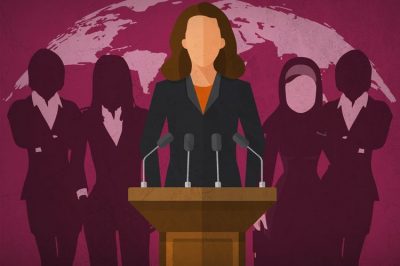New York, 24 June 2023 (WAI): On the occasion of the International Day of Women in Diplomacy, observed annually on June 24th, the world celebrates and recognizes the remarkable contributions of women to global governance. It also emphasizes the urgent need for greater gender parity in diplomatic and political spheres. This momentous day recognizes women’s vital role in shaping international relations, which has often been overlooked throughout history.
Since the drafting and signing of the United Nations Charter in 1945, women have been instrumental in advancing peace, equality, and social progress on a global scale. Women and girls represent half of the world’s population, embodying immense potential and diverse perspectives that enrich diplomacy. Their leadership styles, expertise, and priorities have broadened the scope of issues under consideration and enhanced the quality of outcomes.
Extensive research demonstrates that women’s participation in cabinets and parliaments creates policies and laws that benefit ordinary people promote environmental sustainability, and foster social cohesion. However, despite some progress, the global representation of women in political offices still needs to be improved. Currently, only 34 women serve as elected Heads of State or Government out of the 193 Member States of the United Nations. Furthermore, women hold only 21% of ministerial positions, 26% of national parliamentary seats, and 34% of elected seats in local government worldwide.
Also Read: Empowering Refugees builds bridges to progress
The United Nations General Assembly (UNGA), the largest annual gathering of world leaders, has witnessed several historic moments for gender equality. Nevertheless, achieving women’s representation and participation within the UNGA and other diplomatic arenas requires continued efforts. Over its 77-year history, only four women have been elected President of the UN General Assembly, highlighting the persistent gender disparity.
While the UN Security Council, responsible for global peace and security, has a slightly higher representation of women than the worldwide average, much progress remains to be made. With women comprising somewhat over a third of its 15 members, it is evident that more inclusive governance is necessary to achieve equitable decision-making.
Inclusive governance and increased women’s representation in diplomatic and political roles can generate policies that drive positive and sustainable change. Recognizing the importance of this endeavor, the 76th Session of the United Nations General Assembly, through resolution A/RES/76/269, designated June 24th as the International Day of Women in Diplomacy.
The resolution invites all Member States, United Nations organizations, non-governmental groups, academic institutions, and associations of women diplomats to observe this day in ways they deem appropriate, such as through education and public awareness campaigns.
United Nations Secretary-General, Antonio Guterres, acknowledges the critical role women have played in the history of the UN and calls for the celebration and recognition of their invaluable contributions. He emphasizes that women’s agency in diplomacy is essential for bridge-building, fostering understanding, and creating a more inclusive and peaceful world. On this woman in Diplomacy Day, he salutes their leadership, expertise, and unwavering commitment, while renewing his dedication to achieving gender parity across all levels of the organization.
As the world commemorates the International Day of Women in Diplomacy, let us honor and amplify women’s voices, achievements, and aspirations in shaping global relations. Through collective action, gender equality, and empowering all women and girls, we can create a brighter future for humanity, realizing the Sustainable Development Goals and targets outlined in the 2030 Agenda.








